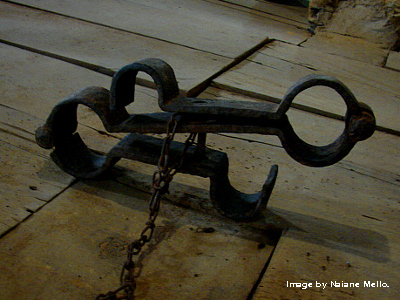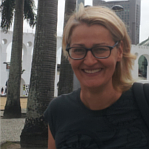Steps To Start Liberating Your Science
Posted on 12 April 2016
Steps To Start Liberating Your Science
 By Robert Davey, The Genome Analysis Centre (TGAC), Ross Mounce, University of Cambridge, Larisa Blazic, University of Westminster, Anelda van der Walt, Talarify, and Raniere Silva, Software Sustainability Institute.
By Robert Davey, The Genome Analysis Centre (TGAC), Ross Mounce, University of Cambridge, Larisa Blazic, University of Westminster, Anelda van der Walt, Talarify, and Raniere Silva, Software Sustainability Institute.
A speed blog from the Collaborations Workshop 2016 (CW16).
The Open Science movement is facing a challenge - how do we convince our peers to liberate their science? During the Collaborations Workshop 2016, we developed these 9 steps to help anyone that is unsure what Open Science is, or who are looking to make their science more open.
Step 1: Learn What Open Research Can Do For You
Are you looking for ways to advance your career, attract new collaborators, or get more funding? These are only a few reasons to start applying open research practices. Why Open Research is a great resource that explains the benefits of open research to you, the researcher or postgraduate student.
Step 2: Understand What the "Open" in Open Science, Open Access, Open Source Means
Now that you know that open research can work in your favour and can increase the impact of your own research, you might be wondering what exactly open research entails and what the true meaning of "open" is in this context.
Open research is an umbrella term and may include the following concepts:
- Open access
- Open data
- Open platforms, tools and services
- Open peer review
- Generally an open approach to conducting research
- Transparency and public engagement
In this case the word "open" does not necessarily mean that your research outputs (data, software, articles) are available at no cost. It also does not necessarily mean that your work are fully available to anyone. A draft definition of open in this context can be found at What is open research? by Vitae and What is open science? by Eva Amsen.
Step 3: Master the search engine
For the vast majority of us who live in a digitally interconnected world, the way we access information today is very different from when libraries and hard copy books were the only way to learn about a subject or get help for a problem. It’s a myth that experts have all the answers in their heads. Even for the world’s leading professionals and academics in any subject, technical or social, search engines are the only way they can keep all this information at their fingertips - being able to find information in the internet age is such a key skill that "Google" is a verb!
Step 4: Help people give credit for your work
Every one of your new open science peers want to cite your work and they will really appreciate your help to do that correctly. We recommend that you create a profile on ORCID which is a mechanism for representing you as an active researcher. ORCID can automatically track your papers, reviews (more on that later), grants, and other information about you. This might seem scary at first, but it really helps others understand your role in the open community.
Step 5: Joining and making communities
Open science has a powerful and community attitude to change. You can get support from many professionals in all domains of science and you only need to know where to find them. Many people use social media platforms to talk about open science and in some places they have local groups with in person meetings. Start a conversation online or show up on one of the in person meetings.
With the community you will learn the vocabulary and more reasons that make open science better.
Despite the openness of many communities, sometimes joining a community is hard. Contributors to open software, for example, often devote their free time to building and maintaining a project. When you contact them, they might give you a frosty response but not out of a lack of desire to help, but purely because that their time is precious to them. You can help yourself first by taking the time to enact step 1 and Google for information, then contacting them with specific requests to contribute to a project where you know they need help. Growing a bit of a thick skin can go a long way.
Finally, if no community exists for your interests, make one!
Step 6: Document everything
Laboratory notebooks are important! Are yours online? If they aren't could you put them online on one of the following platforms?
- BioSharing
- Github (for documentation and code)
- Google Doc
- Overleaf and ShareLaTeX (for LaTeX documents)
- Authorea
You can find good resources to start with at
- DCC
- StackOverflow - find and share expertise
- DMPonline - data management plans
- CONSORT - 25-item medical checklists for publications
For data, ask funding bodies or your institution for help. They have an obligation to provide policy on data sharing and may have repositories.
Step 7: Ask for review from your Open Science peers
Open Science advocates will be very happy if you invite them to review your work.
If you want you can also review the work of others. You can comment articles on PLOS and Gigascience. Reviews can now be listed on your ORCID profile, so you can get credit for contributing back to the scientific community.
When providing feedback to someone remember to be honest and stick to an ethical convention, e.g. an Open Peer Review Oath. This will help give the person you are reviewing for some confidence that you will adhere to community-suggested moral guidelines.
Step 8: Show your work broadly
Isn't it annoying when you find a paper you aren't able to read because you, your university, or institution doesn't have a subscription to a journal? This is called a paywall. Someone needs to pay the journal publisher to gain access to its contents. The Open Science movement promotes the opposite - open access, or OA for short - which means that anyone, anywhere, can get full access to the whole article and all supplementary material for free.
When you are comfortable sharing your work to your peers you can try sharing it more broadly. You can use your ORCID profile to store pre-print articles.
At school, we are taught to show our mathematical "working out" when we present our answers. In software too, it is becoming increasingly common that journals will require that any code should be available at the time of publication. We shouldn't stop there. We should present our data (yes, all of it, including the negative results!), present our "working out", and tell others exactly how we come to our conclusions. Open science is founded on these principles - to prove you’re right, provide your proof!
Try emailing the author for a copy of their work or a pre-print if you really can’t find a copy of it on the internet. Did they reply? If not don’t worry - sadly this is common - email addresses regularly change as people move institutions. This is one of the many problems of the current scholarly communications infrastructure.
Step 9: Share your enthusiasm
If you are convinced by open science, the open science community can have your help.
- Talk about open science on Social Media.
Pick your social media platform of choice and start talking about open science. - Help communities that delivery open source training.
Some that you can join are- The Carpentries (SC, DC)
- Mozilla Science Lab
- Open Knowledge Science Group
- Attend & support community events.
The best ones have Codes of Conduct! Some that you can attend are:- Mozilla (MozFest, MozWOW events, etc)
- Libre Graphics Meeting (LGM)
- OpenCon
- Wikimania - Wikipedia Foundation
- FOSSAsia
- FOSDEM
- csv,conf
Conclusions
When writing this steps we discovery that the path to liberate your science isn't easy. We hope it help more people get involved on open science.


